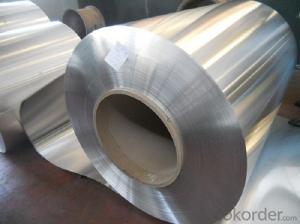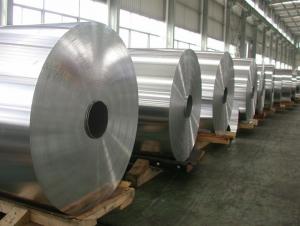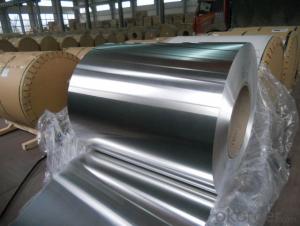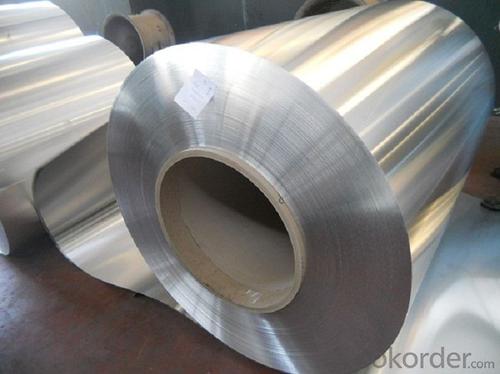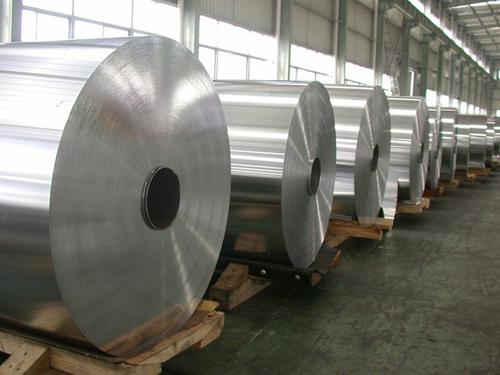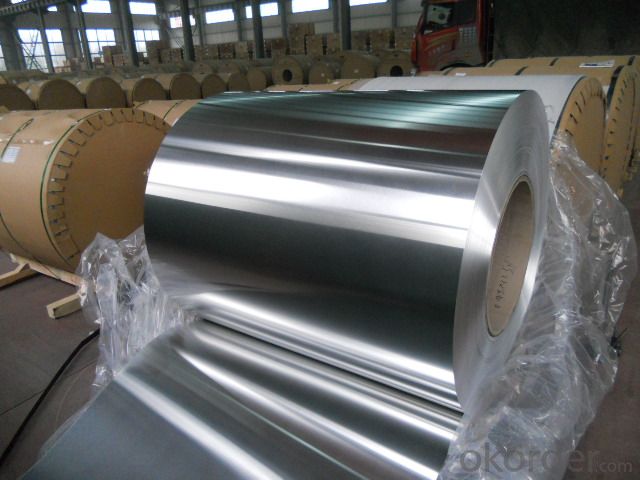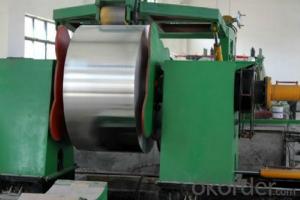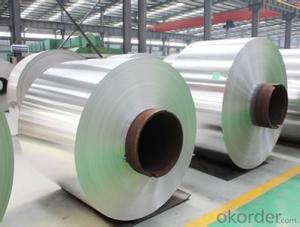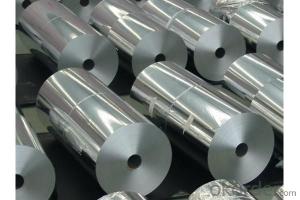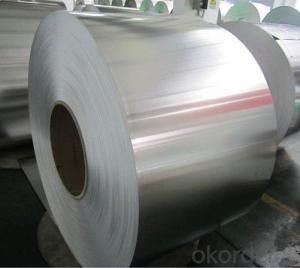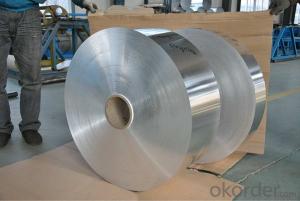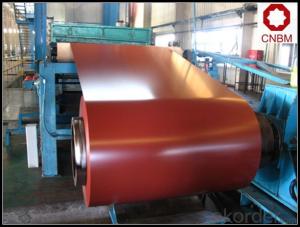Wide Aluminum Coil - Corrosion Inspection 5052 H32 Aluminium Gutter Coil
- Loading Port:
- Shanghai
- Payment Terms:
- TT OR LC
- Min Order Qty:
- 2.5
- Supply Capability:
- 5000 m.t./month
OKorder Service Pledge
OKorder Financial Service
You Might Also Like
Specification
Corrosion Inspection 5052 H32 Aluminium Gutter Coil
l Product Introduction
Aluminium Coil is widely used in manufacturing aluminum thin sheet and aluminum foil. It is suitable for further machining with original standard quality. It is easy to be controlled and be manufactured to according to requirements.
l Product Specification
| Main Specification | ||||||||
| Alloy | AA1xxx (AA1050, AA1060, AA1070, AA1100 etc.) | |||||||
| AA3xxx (AA3003, AA3004, AA3005, AA3105 etc.) | ||||||||
| AA5xxx, AA6XXX (AA5052,AA5083, AA5754, AA6061, AA6062 etc.) | ||||||||
| AA8xxx(AA8011, AA8006 etc.) | ||||||||
| Temper | H14,H16, H18, H22, H24, H26, H32,O/F, T4, T6, T651 | |||||||
| Thickmess | 0.01mm-100mm | |||||||
| Width | 30mm-1700mm | |||||||
| Standard | GB/T 3880-2006/ASTM | |||||||
| Special specification is available on customer's requirement | ||||||||
l Packaging & Delivery
Packaging detail: Standard seaworthy exporting carton, Wooden pallets, waterproof paper and plastic coverage or as customer's requirements
Delivery detail: about 25 days from received oiginal L/C or advanced payment
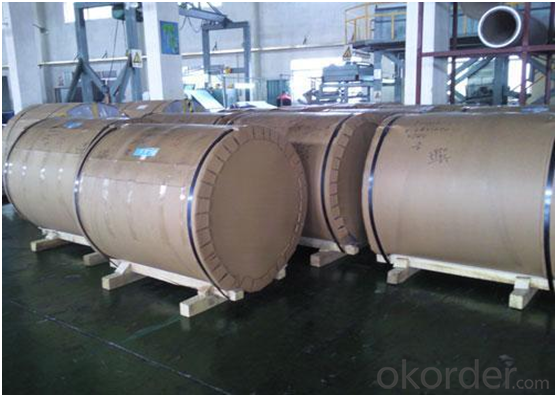
l Company Profile
CNBM International Corporation, China National Building Materials (Group) Corporation, is one of the largest companies in China building material & equipment industry, with 42,800 employees and sales in 2005 of US Dollar 4.395 billion. In 2006, China National Building Material Company Limited was listed on Hong Kong Stock Market with the stock code as 3323.
Aluminium coil is one of the popular product in the market of CNBM. With advanced technology and equipment, CNBM has sold its hight quality color coated aluminium coil to the world.
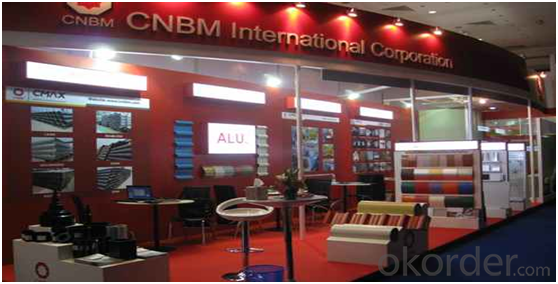
l CNBM World Wide
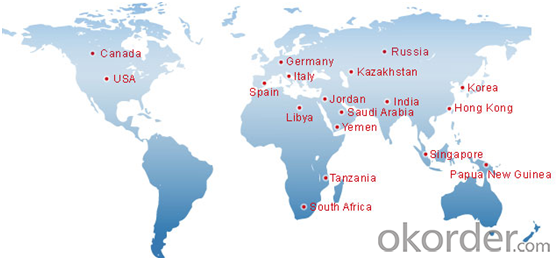
l Product Images
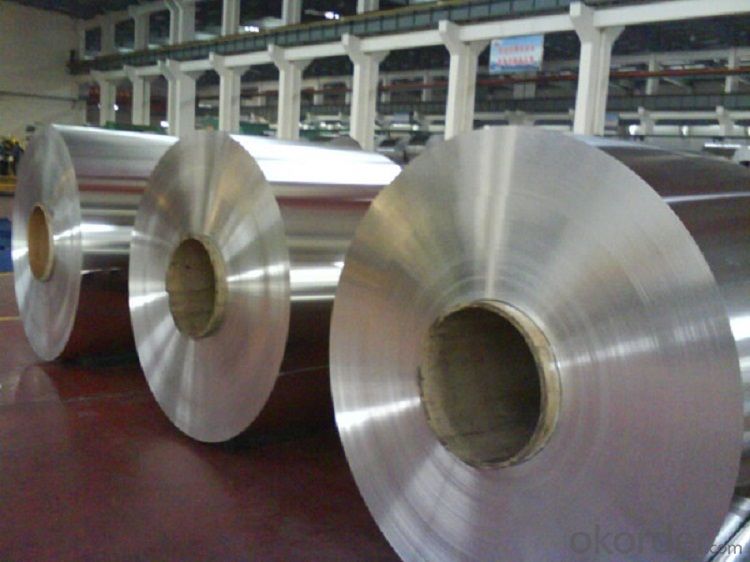
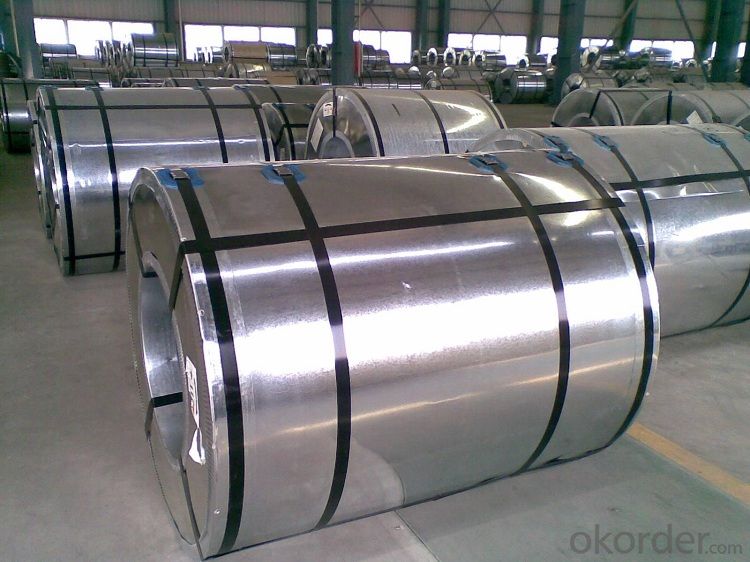
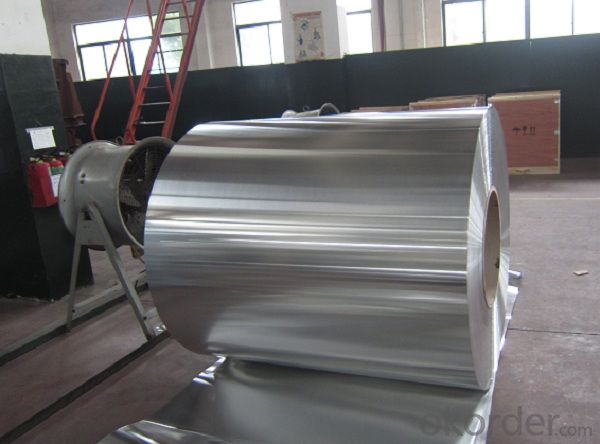
l Certificates
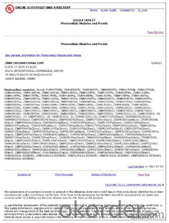
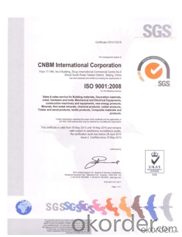
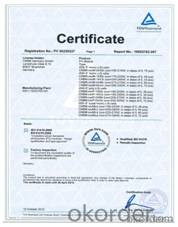
l FAQ
Q: Do you provide free samples?
A: Yes, free samples will be sent to you on freight at destination.
Q: Can I get your latest products catalogue?
A: Yes, it will be sent to you in no time.
Q: What is the MOQ?
A: 2.5 tons
Q: What are your payment terms?
A: We accept L/C, T/T.
- Q: Are there any limitations on the width-to-thickness ratio of aluminum coils?
- Aluminum coils have limitations on their width-to-thickness ratio. This ratio greatly influences the strength and performance of the coils. If the ratio is too high, problems like buckling, warping, or even coil failure can occur. The specific limitations on this ratio depend on factors such as the alloy composition, temper, and intended use of the coil. Different alloys and tempers have varying mechanical properties and can handle different ratios. Moreover, specific applications like roofing, automotive, or packaging may have their own requirements for the width-to-thickness ratio. Manufacturers usually provide guidelines and specifications for acceptable ratios based on their products. These guidelines ensure that coils are used within their intended capabilities and prevent issues caused by excessive ratios. Users and designers must consider these limitations and guidelines when selecting and using aluminum coils. Failing to adhere to these limitations can result in compromised performance, increased risk of damage, and potential safety concerns. Therefore, consulting the manufacturer's recommendations and industry standards is crucial for determining the appropriate width-to-thickness ratio for a given application.
- Q: Are aluminum coils resistant to fire?
- Aluminum coils are widely recognized as being fire-resistant. They possess a high melting point of 660 degrees Celsius, which is considerably higher than the typical temperature of most household fires. Consequently, aluminum coils are a favored choice for diverse applications requiring fire resistance, including the construction of buildings, electrical systems, and automotive components. Moreover, aluminum exhibits low flammability and does not emit toxic fumes when exposed to fire, further heightening its fire-resistant characteristics. Nonetheless, it is vital to acknowledge that the fire resistance of aluminum coils may vary depending on the specific alloy employed and the thickness of the coil. Hence, it is always advisable to seek advice from experts or adhere to industry standards to guarantee the implementation of appropriate fire safety precautions.
- Q: Can aluminum coils be used for food processing conveyor systems?
- Yes, aluminum coils can be used for food processing conveyor systems. Aluminum is a popular choice for conveyor systems in the food processing industry due to its various beneficial properties. Firstly, aluminum is a lightweight material, which makes it easier to install and transport. This is particularly important for conveyor systems that may require frequent reconfiguration or relocation. Additionally, aluminum has excellent corrosion resistance, which is crucial in food processing environments where exposure to moisture, chemicals, and food particles is common. Furthermore, aluminum is a hygienic material that is easy to clean and maintain, ensuring food safety standards are met. Lastly, aluminum coils can be easily formed and customized to fit specific conveyor system requirements, allowing for efficient and effective food processing operations. Therefore, aluminum coils are a suitable choice for food processing conveyor systems.
- Q: Can aluminum coils be used in water treatment plants?
- Yes, aluminum coils can be used in water treatment plants. Aluminum is a commonly used material in various water treatment processes, such as filtration, sedimentation, and coagulation. It is known for its corrosion resistance and durability, making it suitable for handling water and various chemicals commonly used in treatment plants.
- Q: How to use aluminum sheet to roll a 12m-long aluminum coil with a diameter of 184cm?
- According to project experience, first you should check the specification of the aluminum sheet and then design crafts such as connection method, installation and transportation according to equipment.
- Q: Are aluminum coils suitable for HVAC ductwork?
- Yes, aluminum coils are suitable for HVAC ductwork. Aluminum is a lightweight, durable, and corrosion-resistant material, making it an ideal choice for HVAC ductwork. It offers excellent heat transfer properties and is commonly used in both residential and commercial HVAC systems.
- Q: Can aluminum coils be anodized for enhanced durability?
- Yes, aluminum coils can be anodized for enhanced durability. Anodizing is a process that creates a layer of aluminum oxide on the surface of aluminum, making it more resistant to corrosion, wear, and scratches. This layer also provides added protection against UV rays and harsh environmental conditions. By anodizing aluminum coils, they become more durable and can withstand prolonged use in various industries such as construction, automotive, and electronics. Additionally, anodized aluminum coils can be further treated with additional coatings or finishes to enhance their appearance and offer further protection. Overall, anodizing aluminum coils is a widely used and effective method to enhance their durability and prolong their lifespan.
- Q: Can aluminum coils be used in the production of military equipment?
- Indeed, the utilization of aluminum coils in the manufacturing of military equipment is possible. The utilization of aluminum, a lightweight and long-lasting substance, provides numerous benefits for military applications. Its high strength-to-weight ratio renders it a popular choice for constructing military vehicles, aircraft, and naval vessels. Aluminum coils possess the capacity to be molded into diverse shapes and sizes, making them adaptable for fabricating various components such as armor plating, weapon systems, and structural parts. Furthermore, aluminum exhibits commendable resistance to corrosion, a crucial attribute for military equipment operating in harsh environments. In general, aluminum coils are a dependable and extensively employed material in the production of military equipment.
- Q: Are aluminum coils resistant to moisture?
- Yes, aluminum coils are resistant to moisture. Aluminum is inherently corrosion-resistant, which means it has a natural ability to resist the effects of moisture and other environmental factors. This makes it an excellent choice for applications where moisture resistance is crucial, such as in HVAC systems, refrigeration units, and outdoor equipment. Additionally, aluminum can be further protected with a variety of protective coatings and treatments to enhance its resistance to moisture and extend its lifespan. Overall, aluminum coils are known for their durability and ability to withstand moisture, making them a reliable choice in various industries.
- Q: How are aluminum coils inspected for surface defects?
- Aluminum coils are inspected for surface defects using various techniques, including visual inspection, automated systems, and non-destructive testing methods. Visual inspection involves trained personnel examining the coils for any visible defects such as scratches, dents, or discoloration. Automated systems, equipped with advanced cameras, are used to detect surface defects by capturing high-resolution images and analyzing them for any abnormalities. Additionally, non-destructive testing methods like eddy current testing or ultrasonic testing are employed to identify hidden defects or irregularities that cannot be detected by visual inspection alone. These methods help ensure that aluminum coils meet the required quality standards before being used in various industries.
Send your message to us
Wide Aluminum Coil - Corrosion Inspection 5052 H32 Aluminium Gutter Coil
- Loading Port:
- Shanghai
- Payment Terms:
- TT OR LC
- Min Order Qty:
- 2.5
- Supply Capability:
- 5000 m.t./month
OKorder Service Pledge
OKorder Financial Service
Similar products
Hot products
Hot Searches
Related keywords
